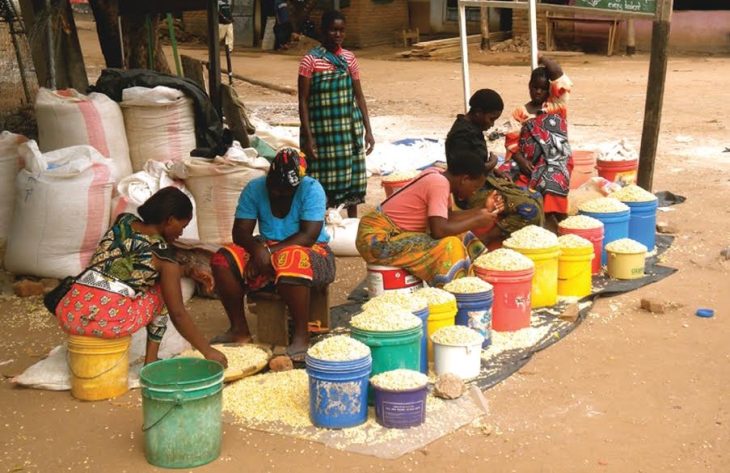
Malawi’s Maize Market Momentum: Navigating Opportunities and Challenges in a Growing Economy
Key Business Points
- Maize prices in Malawi are expected to rise significantly in the coming months, posing a threat to food security and stability.
- The government is urged to implement supply interventions, such as winter cropping and strengthening the role of the Agricultural Development and Marketing Corporation (Admarc), to mitigate the effects of rising prices.
- Investors and business owners are advised to consider alternative agriculture projects, such as irrigation farming, to contribute to the country’s food security and stability.
Malawi’s maize prices have started to rise two months after a harvest-induced drop, leaving the business community concerned about the impact on food security and stability. According to a study by the International Food Policy Research Institute (Ifpri), the prices jumped from K928 per kilogramme to K933 per kg in just one week, marking this season as one of the shortest in terms of maize price deceleration. The rising prices are a cause for concern, as they may lead to unaffordable levels for millions of people who rely on maize as their staple food.
The situation is further exacerbated by the fact that maize production is projected to be below the national requirement of 3.5 million metric tonnes. The deficit has sparked calls for the government to ban maize exports and strengthen Admarc’s role as a market stabiliser. Consumers Association of Malawi executive director John Kapito urged the government to take immediate action to control prices and prevent a sharp increase in maize prices.
On the other hand, the Ministry of Agriculture is working to enhance irrigation farming to increase maize production. The ministry’s director of crop development, Elida Kazira, announced that they are projecting to produce at least 250,000MT of maize per cycle from 50,000 hectares in three cycles. This initiative is seen as a promising step towards addressing the maize shortage and ensuring food security. As the situation continues to unfold, business owners and investors are advised to stay vigilant and consider alternative agriculture projects that can contribute to the country’s food security and stability. By doing so, they can chinja dzina la nyenyekezera (create a new name for themselves) and play a vital role in supporting the country’s economic growth.
What are your thoughts on this business development? Share your insights and remember to follow us on Facebook and Twitter for the latest Malawi business news and opportunities. Visit us daily for comprehensive coverage of Malawi’s business landscape.
- Kanyika Niobium Mine Breaks Ground: Fuelling Malawi’s Business Growth - February 12, 2026
- RBM Tightens Grip: K145bn Treasury Decision Impacts Malawi’s Economic Landscape - February 11, 2026
- Malawi Entrepreneurs: Scale Your SME, Strengthen the Economy - February 10, 2026
